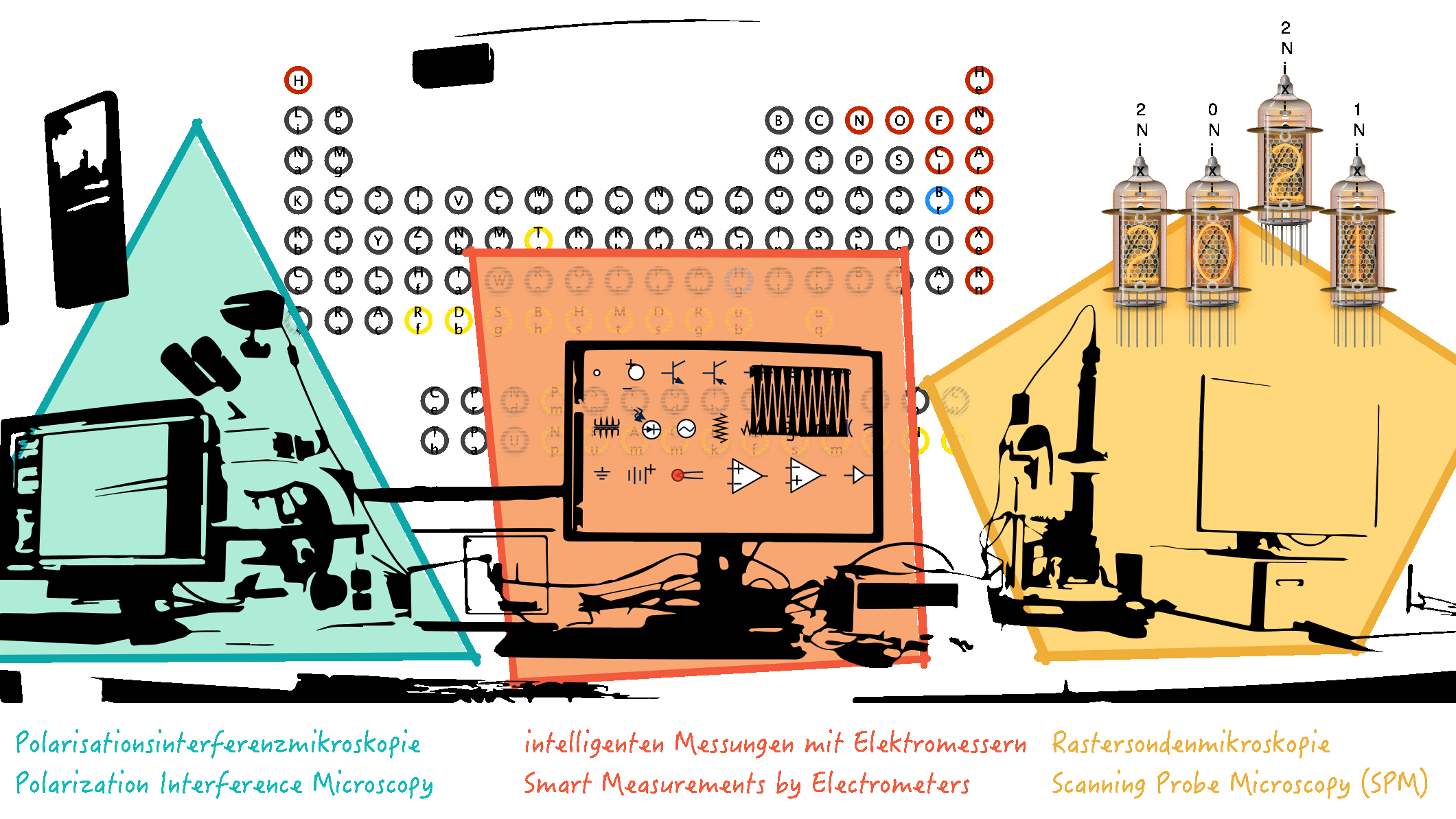Scanning Probe Microscopy, Electrometer, Optical Microscopy, etc
Experiments with Micro-/Nano- materials



The Institute of Photonics at Leibniz Universität Hannover was founded in late 2020. It’s aim is pursuing research and teaching in the growing interdisciplinary field of photonics. The Institute of Photonics deals with basic and application-oriented research of photonic effects and systems, using both experimental and numerical / theoretical methods. The research ranges from the study of new photonic phenomena to the design of optical fiber-based and integrated systems and phonic nanostructures. Here effects and structures are taken into account that are on the order of the wavelength of the light. Another focus of the institute’s research is the application of these new systems in e.g. sensor technology and information processing.
The institute currently has two professorships. Prof. Xiaoying Zhuang PhD deals with the development and application of machine learning processes and numerical mechanics to calculate and design new types of nanostructures, metamaterials and photonic systems. Prof. Dr. Michael Kues researches photonic quantum systems with a focus on technology development. Examples are the implementation of quantum-enhanced measurement methods, e.g. resolution improvement, and the implementation of quantum information processing systems, e.g. the implementation of optimization algorithms. Both professors have been awarded an ERC Starting Grant and have excellent networks throughout the institutes, nationally and internationally. The institute is significantly involved in the excellence cluster "PhoenixD" and has collaborations with universities in Germany (e.g. KIT, Ruhr University Bochum, University of Leipzig) and with research institutions worldwide (e.g. Glasgow University, Aarhus University).
The institute currently has two professorships. Prof. Xiaoying Zhuang PhD deals with the development and application of machine learning processes and numerical mechanics to calculate and design new types of nanostructures, metamaterials and photonic systems. Prof. Dr. Michael Kues researches photonic quantum systems with a focus on technology development. Examples are the implementation of quantum-enhanced measurement methods, e.g. resolution improvement, and the implementation of quantum information processing systems, e.g. the implementation of optimization algorithms. Both professors have been awarded an ERC Starting Grant and have excellent networks throughout the institutes, nationally and internationally. The institute is significantly involved in the excellence cluster "PhoenixD" and has collaborations with universities in Germany (e.g. KIT, Ruhr University Bochum, University of Leipzig) and with research institutions worldwide (e.g. Glasgow University, Aarhus University).
Scanning Probe Microscopy, Electrometer, Optical Microscopy, etc


